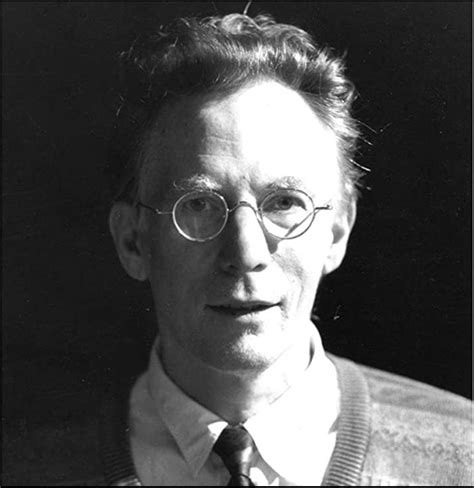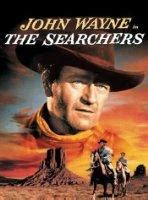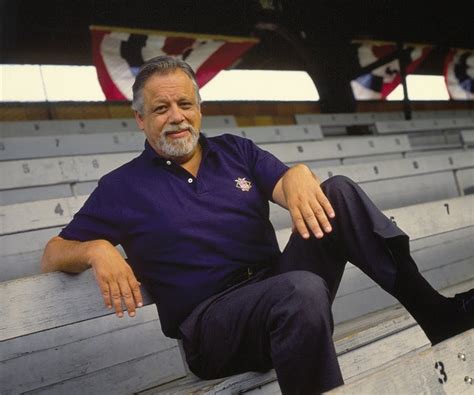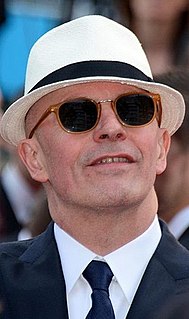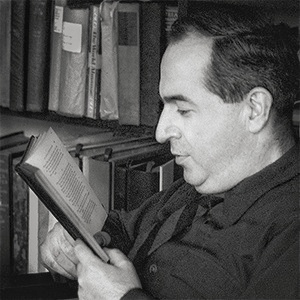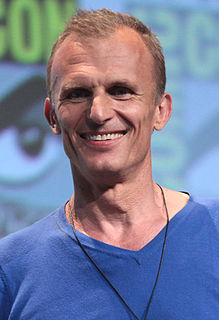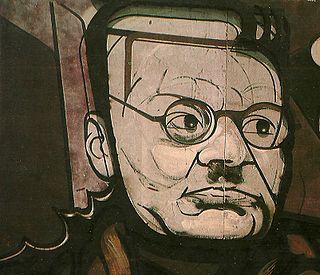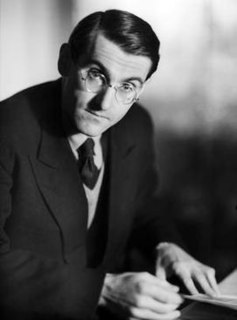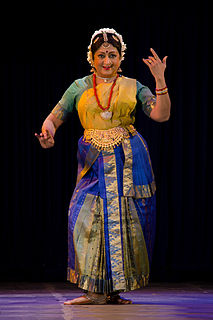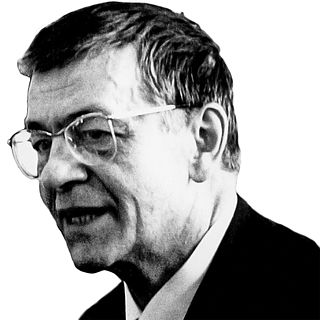Top 373 Spectator Quotes & Sayings - Page 6
Explore popular Spectator quotes.
Last updated on December 22, 2024.
The artist has some internal experience that produces a poem, a painting, a piece of music. Spectators submit themselves to the work, which generates an inner experience for them. But historically it's a very new, not to mention vulgar, idea that the spectator's experience should be identical to, or even have anything to do with, the artist's. That idea comes from an over-industrialized society which has learned to distrust magic.
The more we understand what is happening in the world, the more frustrated we often become, for our knowledge leads to feelings of powerlessness. We feel that we are living in a world in which the citizen has become a mere spectator or a forced actor, and that our personal experience is politically useless and our political will a minor illusion.
I got out of that immediately was that now, all of a sudden, rock music had become a spectator sport, that corporate labels and their bands were the new establishment, and punk was there to fight them the way the activist hippies must have fought what the establishment must have been ten years before. And it was interesting to see the reactions in different parts of the country.
Whatever you do to recover from a loss, people will be critical because they believe that the only way to recover is their way. And you will even run into some people who should be run into by rhinos because they actually don't want to see you get over your tragedy at all; grief is a spectator sport for them.
The lover of photography is fascinated both by the instant and by the past. The moment captured in the image is of near-zero duration and is located in a ever-receding then. At the same time, the spectator's now, the moment of looking at the image, has no fixed duration. It can be extended as long as fascination lasts and endlessly reiterated as long as curiosity returns.
It appears to Nietzsche that the modern age has produced for imitation three types of man ... First, Rousseau's man, the Titan who raises himself ... and in his need calls upon holy nature. Then Goethe's man ... a spectator of the world ... Third Schopenhauer's man ... voluntarily takes upon himself the pain of telling the truth.
I always seek to mobilize, to call on the imagination of the spectator. It's well-known that the images that are created by one's imagination are far stronger than any that I can show. In fact, it's an error, a widespread error in mainstream cinema, to always want to show things and to depict things.
In the theater the audience is generally riveted to a single angle of observation. The movie director, though, can rapidly shift from objective to subjective--and to any number of subjective points of view--and in so doing seem to pull the audience directly inside the frame of his picture, giving the spectator the sense of experiencing an action from the viewpoint of a participant. Identification of the viewer with the film character, then, can be much more intimate than the analogous situation in the theater.
When you are born without the ordinary feelings and emotions shared by most other human beings, life looks different to you. It seems at times like a movie you’re walking through, more a spectator than a participant. There is above all a lack of empathy with most of mankind, a sense of detachment. But with detachment comes perspective. The less you care, the more you know, and the more you know the less you care.
All art is at once surface and symbol. Those who go beneath the surface do so at their peril. Those who read the symbol do so at their peril. It is the spectator, and not life, that art really mirrors. Diversity of opinion about a work of art shows that the work is new, complex, and vital. When critics disagree, the artist is in accord with himself.
It is no accident that propels people like us to Paris. Paris is simply an artificial stage, a revolving stage that permits the spectator to glimpse all phases of the conflict. Of itself Paris initiates no dramas. They are begun elsewhere. Paris is simply an obstetrical instrument that tears the living embryo from the womb and puts it in the incubator.
In fact, entertainment has taken the place of celebration in the present world. But entertainment is quite different from celebration; entertainment and celebration are never the same. In celebration you are a participant; in entertainment you are only a spectator. In entertainment you watch others playing for you. So while celebration is active, entertainment is passive. In celebration you dance, while in entertainment you watch someone dancing, for which you pay him.
The true lover of learning then must his earliest youth, as far as in him lies, desire all truth.... He whose desires are drawn toward knowledge in every form will be absorbed in the pleasures of the soul, and will hardly feel bodily pleasures I mean, if he be a true philosopher and not a sham one ... Then how can he who has the magnificence of mind and is the spectator of all times and all existence, think much of human life He cannot. Or can such a one account death fearful No indeed.
If nobody talks about books, if they are not discussed or somehow contended with, literature ceases to be a conversation, ceases to be dynamic. Most of all, it ceases to be intimate. It degenerates into a monologue or a mutter. An unreviewed book is a struck bell that gives no resonance. Without reviews, literature would be oddly mute in spite of all those words on all those pages of all those books. Reviewing makes of reading a participant sport, not a spectator sport.
Just do two things: meditate, watch your thought processes; become just a spectator of your mind. That is meditation, becoming a witness. And second: follow the law, follow the natural course. Don't be unnatural, don't try to fight with nature - stop being a fighter. Learn how to relax with nature, learn to let go. Flow with nature, allow nature to possess you totally.
If you want to know who God is, look at Jesus. If you want to know what it means to be human, look at Jesus. If you want to know what love is, look at Jesus. If you want to know what grief is, look at Jesus. And go on looking until you’re not just a spectator, but you’re actually part of the drama which has him as the central character.
Film is the packaging of information in cans. Videotape is involved with the feeding back of process. Film rips information away from the situation for use elsewhere. Videotape can be fed back into a given situation and enrich experience. Film extends man as a spectator. Videotape extends man as a cybernator. Film imports information. Videotape implodes indigenous data.
Long ago, when I was a very young girl, I said that I wanted to go everywhere, see everything, taste everything. hear everything, touch everything, try everything before I died. There isn't anything you can name that a woman can do that I haven't done. I don't intend to stand by and be a spectator. I want to be right in there in the midst of it, right up to my nose - totally involved in the community, in the world, in the stream of history, in the human image.
Now tell me this. What would you consider the greatest spectator sport in the country today? Would you say it was baseball, basketball, football?... It's politics. That's right, politics. Millions and millions of people following it every day in the newspapers, over the TV and the radio. Now mind you, they wouldn't get mixed up in this themselves for all the tea in China, but they know the names and numbers of all the players. And what they can't tell the coaches about strategy. Oh, you should see some of the letters I get.
The spectator, as he walks the gallery, will stop, or pass along. To give a general air of grandeur at first view, all trifling, or artful play of little lights, or an attention to a variety of tints is to be avoided; a quietness and simplicity must reign over the whole work, to which a breadth of uniform and simple color will very much contribute.
Teaching is an instinctual art, mindful of potential, craving of realizations, a pausing, seamless process, where one rehearses constantly while acting, sits as a spectator at a play one directs, engages every part in order to keep the choices open and the shape alive for the student, so that the student may enter in, and begin to do what the teacher has done: make choices.
As a boy I had liked both drawing and physics, and I always abhorred the role of being a spectator. In 1908, when I was 15, I designed, built and flew a toy model airplane which won the then-famous James Gordon Bennett Cup. By 16 I had discovered that design could be fun and profitable, and this lesson has never been lost on me.
I think 'Scarface' is a great film, but if you have a character like Tony Montana, you don't identify with him at all. I think it's very interesting instead to identify yourself with a character you don't like all the time. You can create a tension between the fiction and the viewer. You force the spectator to wonder about his actions.
Is there in painting an effect which arises from the being together of repose and energy in the artist's mind? - can both repose and energy be seen in a painting's line and color, plane and volume, surface and depth, detail and composition? - and is the true effect of a good painting on the spectator one that makes at once for repose and energy, calmness and intensity, serenity and stir?
I love my situation as a spectator. The actors are only a little bit ahead of the audience. The audience discovers the episode when it's screened, but we actors only discover the episode when we get the script, two weeks ahead of shooting. Until then, we know nothing of the evolution of our characters.
One day Barack Obama targets one group or business, the next day he targets another. Never, ever does he take responsibility for any of this mayhem. Oh, no! He's just an innocent bystander. He's a spectator. After running up debt heretofore unseen in this country, he tells us we have to get control of our spending. Now, he is desperately trying to save his pathetic and destructive presidency, and to get reelected he does not give a damn who he hurts in the process or what he damages.
In every painting, as in any other work of art, there is always an IDEA, never a STORY. The idea is the point of departure, the first cause of the plastic construction, and it is always present all the time as energy creating matter. The stories and other literary associations exist only in the mind of the spectator, the painting acting as the stimulus.
My wife was an opera singer, you know. She bellowed her way through Wagner as a Valkyrie. I married her and made her give up the theatre, to my eternal cost. She was to go on acting for myself alone. A performance at his own expense, lasting for more than twenty years, tends to wear out your spectator.
My aim is to communicate with the last man in the audience. Art minus communication is meaningless. The term 'abhinaya' is not just facial expressions. It means drawing the spectator to an idea. Look at the modern advertisements. It's contemporary abhinaya. But one who creates should know what has to be completely and what has to be suggestively portrayed. That is ethical aesthetics. The Natyasastra says a production must be such that a family should be able to watch it together.
I will begin with what in my opinion is your lack of restraint. You are like a spectator in a theatre who expresses his enthusiasm so unrestrainedly that he prevents himself and others from hearing. That lack of restraint is particularly noticeable in the descriptions of nature with which you interrupt dialogues; when one reads them, these descriptions, one wishes they were more compact, shorter, say two or three lines.
To express dynamic motion through a static moment became for me limited and unsatisfactory. The basic idea was to liberate myself from this old concept and arrive at an image in which the spectator could feel the beauty of a fourth dimension, which lies much more between moments than within a moment. In music one remembers never one tone, but a melody, a theme, a movement. In dance, never a moment, but again the beauty of a movement in time and space.
an Autobiography is the truest of all books; for while it inevitably consists mainly of extinctions of the truth, shirkings of the truth, partial revealments of the truth, with hardly an instance of plain straight truth, the remorseless truth is there, between the lines, where the author-cat is raking dust upon it which hides from the disinterested spectator neither it nor its smell... the result being that the reader knows the author in spite of his wily diligences.
Like a great poet, Nature produces the greatest results with the simplest means. These are simply a sun, trees, flowers, water and love. Of course, if the spectator be without the last, the whole will present but a pitiful appearance, and in that case, the sun is merely so many miles in diameter, the trees are good for fuel, the flowers are classified by stamens, and the water is simply wet.
Man alone knows that he must die; but that very knowledge raises him, in a sense, above mortality, by making him a sharer in the vision of eternal truth. He becomes the spectator of his own tragedy; he sympathizes so much with the fury of the storm that he has no ears left for the shipwrecked sailor, though the sailor were his own soul. The truth is cruel, but it can be loved, and it makes free those who have loved it.
I'm always very grateful for stories about the great coffeehouse wits in Vienna at the turn of the last century. People would wait for a chance to stand near the table where the great wits were trading witticisms as a spectator sport because it was that good. They were that on fire and there was no product. They didn't write anything down. It was just the pleasure of engagement with the moment. I think that's my kind of ideal of how I live.
I think that there's some brainwashing going on with this idea that we don't have time to cook anymore. We have made cooking seem much more complicated than it is, and part of that comes from watching cooking shows on television-we've turned cooking into a spectator sport. ...My wife and I both work, and we can get a very nice dinner on the table in a half hour. It would not take any less time for us to drive to a fast-food outlet and order, sit down, and bus our table.
Faites de beaux rêves, monsieur," she called as she put out the light. Switters had always loved that expression, "Make fine dreams." In contrast to the English, "Have sweet dreams," the French implied that the sleeper was not a passive spectator, a captive audience, but had some control over and must accept some responsiblity for his or her dreaming. Moreover, a "fine" dream had much wider connotations than a "sweet" one.
When film is not a document, it is dream. That is why Tarkovsky is the greatest of them all. He moves with such naturalness in the room of dreams. He doesn't explain. What should he explain anyhow? He is a spectator, capable of staging his visions in the most unwieldy but, in a way, the most willing of media. All my life I have hammered on the doors of the rooms in which he moves so naturally. Only a few times have I managed to creep inside. Most of my conscious efforts have ended in embarrassing failure - The Serpent's Egg, The Touch, Face to Face and so on.
Behind my work was ambition, behind my love was personality, behind my purity was fear, behind my guidance the thirst for power. Now they are vanishing and I drift. I come, Mother, I come, in Thy warm bosom, floating wheresoever Thou takest me, in the voiceless, in the strange, in the wonderland, I come - a spectator, no more an actor.
You know, small children take it as a matter of course that things will change every day and grown-ups understand that things change sooner or later and their job is to keep them from changing as long as possible. It’s only kids in high school who are convinced they’re never going to change. There’s always going to be a pep rally and there’s always going to be a spectator bus, somewhere out there in their future.
A human being without the proper empathy or feeling is the same as an android built so as to lack it, either by design or mistake. We mean, basically, someone who does not care about the fate which his fellow living creatures fall victim to; he stands detached, a spectator, acting out by his indifference John Donne's theorem that "No man is an island," but giving that theorem a twist: that which is a mental and a moral island is not a man.
I realized that I was connected to Africa. I wasn't just a Colored girl. I was part of a whole world that wanted a better life. I'm part of a majority and not a minority. My life has been a life of growth. If you're not growing, you're not going to understand real love. If you're not reaching out to help others then you're shrinking. My life has been active. I'm not a spectator
The photographer discovers himself/herself being photographed and we can guess he is uncomfortable. Unsuccessfully he/she tries to recompose his posture and to look like a photographer taking photos. But no, he is and continues to be a spectator. The momentous fact of being photographed leads him to becoming an actor. And, as always, actors must assume a role, which is only an elegant way of avoiding to say they must choose sides, choose a faction, take an option.
From a spectator point of view, Test cricket is not important; people hardly watch Test cricket. But as a player, Tests are the real thing. You have to concentrate for five days. It's a lot of time, and not easy to do it day in and day out. If people have played 70-100 Tests, it's a lot of cricket, a lot of concentration and dedication.
The problem with kitsch is that it is all too profound, manipulating deep libidinal and ideological forces, while true art knows how to remain at the surface, how to subtract it's subject from it's deepest context of historical reality. The same goes for contemporary art, where we often encounter brutal attempts to return to the Real, to remind the spectator or reader that he is perceiving a fiction, to awaken him from a sweet dream.
The repeat run of Fawlty Towers (BBC2) drew bigger audiences than ever and deservedly so. Statistical surveys reveal that only the television critic of the Spectator is incapable of seeing the joke, which is that Basil Fawlty has the wrong temperament to be a hotel proprietor, just as some other people have the wrong temperament to be television critics.
I think we have got to start again and go right back to first principles. The argument I shall advance, surprising as it may seem coming from the author of the earlier chapters, is that, for an understanding of the evolution of modern man, we must begin by throwing out the gene as the sole basis of our ideas on evolution. If there is only one Creator who made the tiger and the lamb, the cheetah and the gazelle, what is He playing at? Is he a sadist who enjoys spectator blood sports? ... Is he manuvering to maximize David Attenborough's television ratings?
If we paint the phases of a riot, the crowd bustling with uplifted fists and the noisy onslaughts of cavalry are translated upon the canvas in sheaves of lines corresponding with all the conflicting forces, following the general laws of violence of the picture... These force-lines must encircle and involve the spectator so that he will in a manner be forced to struggle himself with the persons in the picture.
The valuable library of Alexandria was pillaged or destroyed; and near twenty years afterwards, the appearance of the empty shelves excited the regret and indignation of every spectator whose mind was not totally darkened by religious prejudice. The compositions of ancient genius, so many of which have irretrievably perished, might surely have been excepted from the wreck of idolatry, for the amusement and instruction of succeeding ages.
Sometimes I feel that I am destined always to be offstage whenever the main action occurs. That God has made me the victim of some cosmic practical joke, by assigning me little more than a walk-on part in my own life. Or sometimes I feel that my role is simply to be a spectator to other people's stories, and always to wander away at the most important moment, drifiting into the kitchen to make a cup of tea just as the denouement unfolds.
There's always a wine bully. The one person who did read the 'Wine Spectator,' who tells you what to drink and why the '97 is better than the '98. I want to punch the wine bully in the face. I want to make sure this generation of wine drinkers isn't elitist and snotty. I want it to be about family and bringing people together.
Hollywood films are alienating to the spectator because they use too much dialogue, too much explication and leave no space for the viewer. They depress me. I use direct sound, mono not stereo. Just direct sound, so for every shot there are only two sources. Sound creates an intimate effect: the sensation to feel the place. It makes the viewer enter. You have the liberty to hear what you want.




